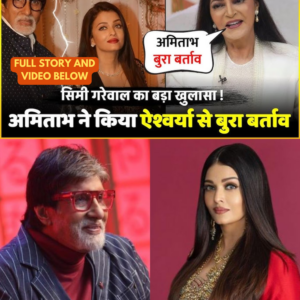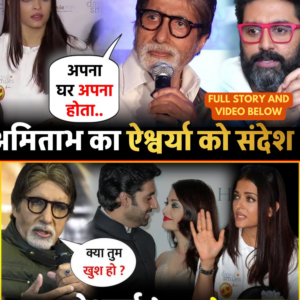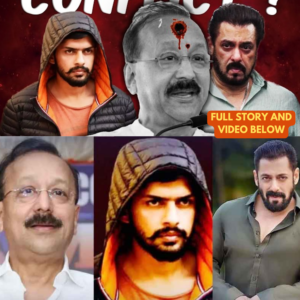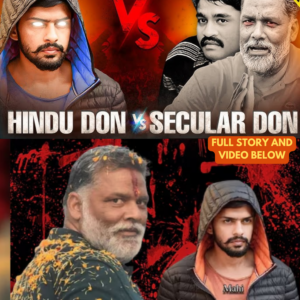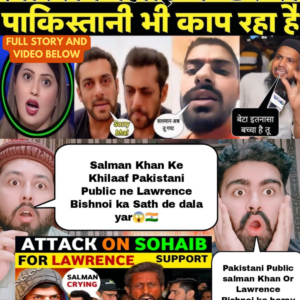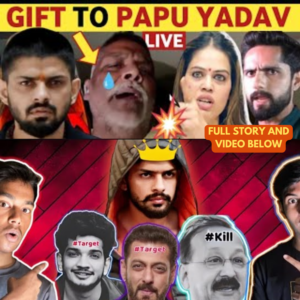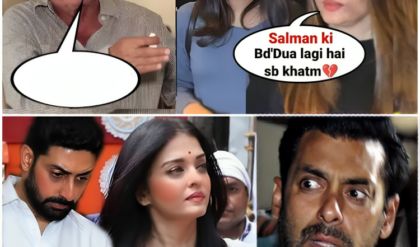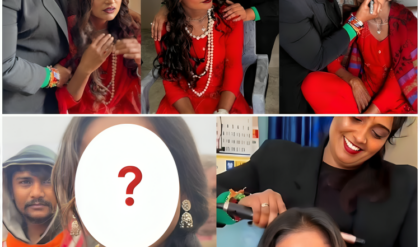Deepak’s last advice to Salman Khan, make arrangements because as soon as Lawrence Bishnoi wins the election…
In a recent discussion, the threats against Bollywood superstar Salman Khan by the Lawrence Bishnoi gang have taken center stage. The media frenzy surrounding this situation has ignited conversations among Khan’s fans, who are vocal on social media. Many assert that no one has the audacity to harm the beloved actor, firmly believing that Bishnoi’s threats are mere bluster.
Joining the conversation is Deepak from Delhi, who shares his thoughts on the matter. He expresses concern over the atmosphere in Bollywood, which he describes as eerily silent in the wake of these threats. Referring to a recent film titled “Purani Haweli,” he uses metaphors to illustrate the tension, likening the current scene to a haunted setting where fear lurks.
Deepak criticizes the prevailing culture within the film industry, emphasizing the need for Bollywood to rethink its direction. He calls out the superficial aspects of many productions, suggesting that filmmakers should learn from South Indian cinema, which often emphasizes storytelling over flashy visuals. He argues that Bollywood has been led astray by trends that prioritize aesthetics over substance.
As the discussion progresses, Deepak highlights the lack of solidarity among those who have benefitted from Salman Khan’s success. He points out that while Khan has helped numerous individuals in the industry, many of them are now distancing themselves from him amid the controversy, even going so far as to delete past social media posts that celebrated their associations with him.
Deepak expresses frustration at the silence of prominent figures in Bollywood, suggesting that fear has paralyzed them. He recalls how some stars, who once boasted about their connections, are now nowhere to be found. The sense of loyalty seems to have evaporated, leaving Khan somewhat isolated.
The conversation takes a critical turn as Deepak scrutinizes the media’s role in this situation. He implies that sensationalism has overshadowed genuine reporting, and instead of rallying behind Khan, the media has contributed to the atmosphere of fear. This situation, he argues, has turned public figures into mere shadows of their former selves.
Moreover, he reflects on the irony of how those who once portrayed themselves as powerful figures in the industry are now silent. Deepak emphasizes that the bravado they displayed in public is in stark contrast to their current behavior, which he sees as cowardice.
In a lighter vein, Deepak mentions a character he refers to as “German Sepat,” highlighting the absurdity of how some individuals react to threats. He humorously illustrates the paradox of bravado crumbling in the face of real danger, pointing to the contradictions within the entertainment world.
Towards the end of the discussion, Deepak urges the industry to confront its issues head-on. He believes that Bollywood must rise above superficial concerns and acknowledge the realities of the situation. The need for unity and support among industry members, particularly for someone like Salman Khan, has never been more pressing.
In conclusion, Deepak’s commentary sheds light on the current climate in Bollywood, marked by fear and silence. As Salman Khan faces threats from the Lawrence Bishnoi gang, the lack of support from his peers raises questions about loyalty and the industry’s moral compass. The conversation calls for a reevaluation of values in Bollywood and a return to a more authentic representation of talent and courage.
News
Amitabh Bachchan behaved badly with his daughter-in-law Aishwarya Rai | Amitabh IGNORE Aishwarya Rai
In recent weeks, a wave of speculation has emerged suggesting that all may not be well between former Miss World Aishwarya Rai and the iconic Bachchan family. This speculation has captured the attention of fans and the media, as rumors…
Amitabh gave a message to daughter-in-law Aishwarya Rai, said “No matter how your house is, it is yours”
Amitabh Bachchan, the iconic figure of Indian cinema, has a longstanding tradition of engaging with his audience through social media. He often shares reflections on his life, career, and personal philosophies. Recently, a particular post of his has stirred significant…
Salman Khan vs Lawrence Bishnoi | Why it is Happening? |
Salman Khan vs Lawrence Bishnoi | Why it is Happening? | The tension between Bollywood superstar Salman Khan and gangster Lawrence Bishnoi has become a hot topic in recent news. This clash is not just a simple feud; it embodies…
Lawrence Bishnoi Vs Pappu Yadav | Bishnoi Targets Anti-India Mafia?
In the ever-evolving landscape of India’s criminal underworld, a new chapter is unfolding, marked by the dramatic confrontation between notorious gangster Lawrence Bishnoi and the infamous Bihar don, Pappu Yadav. This rivalry has escalated recently, with Bishnoi’s gang issuing a…
LAWRENCE BISHNOI VS SALMAN KHAN, PAKISTANI PUBLIC REACTION AFTER NADEEM KHAN VIRAL VIDEO, REAL TV
The recent controversy involving Bollywood superstar Salman Khan and Lawrence Bishnoi has sparked intense discussions across communities, especially concerning allegations of animal cruelty. The speaker, representing a particular community, emphasizes that if there is evidence that Khan has harmed a…
LAWRENCE BISHNOI’S DIWALI GIFT TO PAPU YADAV LIVE, AFTER NADEEM KHAN & SALMAN KHAN, LATEST NEWS
In a recent live discussion, significant attention was drawn to the ongoing tensions surrounding Pappu Yadav and Lawrence Bishnoi, especially in light of recent developments involving prominent figures like Nadeem Khan and Salman Khan. The speaker began by addressing the…
End of content
No more pages to load
